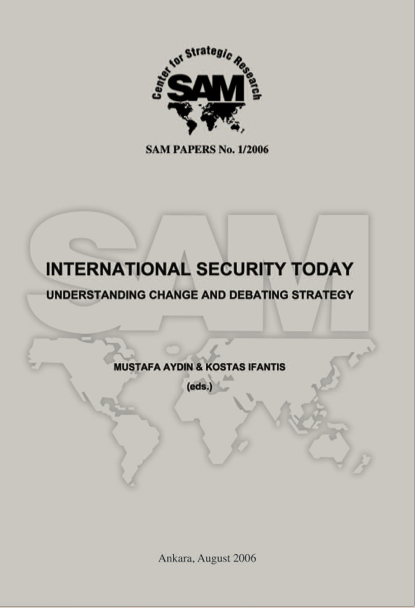
This book deals with the problems of the contemporary international security paradigm. The authors included in this volume do not attempt to survey the entire “field” of international security politics. Instead, they identify issues and pose or imply questions: What are the likely threats for global security with in near future? How conventional they are? What are the new areas of threat? How is the threat of international terrorism likely to change over the next few years? What are the possible new developments? How should we think about the linkage between terrorism and WMD? To answer them is a massive challenge. The task of the authors is to try and capture the security’s new –or newly discovered– multidimensionality, and to emphasize the themes that have been most important in the current security discourse and in the shaping of national security strategies and defence policies.
Security is multidimensional because individual welfare is more central to policy-making than it was fifty years ago. Individual security can no longer be satisfied only through military measures; it needs a multidimensional understanding. As Politi has noted, “individual security and international stability are becoming increasingly intertwined and a security threat is anything that hampers any relevant organization in ensuring individual security”. That means that security is elusive; more than ever, it is embedded in the interaction of localizing and globalizing forces. The axes of conflict in the shadow of the Cold War and under the impact of 9/11 are already proven to be more complex, not less, and more difficult to manage, not easier. Policies begin to blur traditional dividing lines, both between jurisdictions and between concepts that were formerly discrete. Indeed, everything has not changed – but what has changed did so faster than we ever expected.
Reference: Aydın, Mustafa and Kostas Ifantis (der.) (2006) International Security Today: Understanding Change and Debating Strategy, Ankara: Stratejik Araştırmalar Merkezi.
